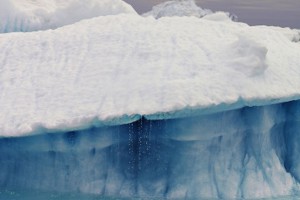30th September 2013 New Delhi, India
International Climate Science
Today the IPCC published its 5th Assessment Report on the science of climate change. I’m no climate science expert so, if you’re interested in the report’s findings, there will be much better informed articles on this I’m sure. You could start with this video summary of why it matters, the UK response or this digested read. And this is an account from one of the scientists involved.
For what it’s worth, my take from the report is that climate change is happening, will continue to happen and humans are (extremely likely to be) responsible. The world is already looking at increasing temperatures and other changes associated with that – for example sea level rise, different rainfall patterns and changing habitats. Quite what happens in future will be governed by what we (humanity) do and how sensitive the climate system is to more CO2 in the atmosphere.
What got me interested, and moved me to write this blog, is that last sentence – there is a degree of uncertainty in the climate’s sensitivity and, perhaps more, in how we’ll respond. That’s not to say the fundamentals of climate change aren’t settled – they are. Whilst terms such as ‘likely’ and ‘probable’ are used very carefully to mean something quite specific by climate scientists, they can be misunderstood to overstate the uncertainty that does exist. More fundamentally, uncertainty is part of science – if everything was certain, there’d be no need for more research. This is explained better than I could here or here. Framed the other way around reducing uncertainties requires more research. And, given that we’re talking about global climate change, I’d suggest that any uncertainty means we need a global research effort as part of our response.
That’s a pretty obvious statement for climate research itself – you can’t just measure the climate in one country and building accurate models of the world’s atmosphere cannot be done without input from around the globe. Furthermore, if climate sciences are to properly influence policies of governments around the world, the best science needs to be made available to them, no matter which country it originates from.
This is something the IPCC is set up to do and, given our job, it was heartening to see around 30 scientists from the UK contributing to the latest report, and a similar number from India. You can see what our team has been doing to promote increased research collaboration in environmental sciences elsewhere on this blog. Initiatives like the relationship between India’s Ministry of Earth Sciences and the UK’s Natural Environment Research Council will help improve our understanding of important aspects of climate, like the variability of the South Asian Monsoon.
Mitigation can happen at a national or even local level – lots of houses reducing their emissions adds up! However, if the kinds of emissions reductions being recommended are to be achieved we need action at a global scale. And research will have a massive role to play in providing cheaper and better technologies to help that.
We know that international co-authorship increases the citation impact of research (this is true for UK research, and specifically for UK-India collaboration). In other words, more people read and highly rate the research that is carried out internationally. It stands to reason that in the areas you most want to have impact, international collaboration is a particularly good thing. And what could be more important than keeping the lights on whilst reducing carbon emissions? That’s why sustainable energy was agreed as a priority at the last UK-India Science & Innovation Council, and why so many of the joint calls RCUK has run with India feature energy. You can see what else we’ve doing to build UK-India links in this area too.
So, the climate is changing and we’re responsible. Predicting quite how much it will change, what damage that change will cause and how much of that we can avoid, all require an international research effort. We’ll be doing our part to make sure that happens.